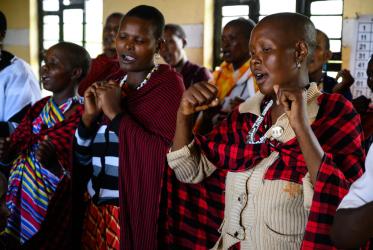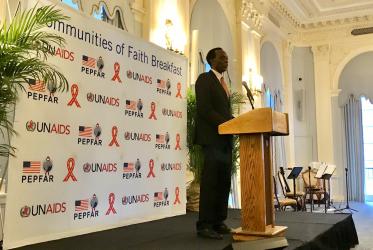Affichage de 1 - 20 de 29
21 Décembre 2023
Zimbabwe symposium emphasizes working with men in HIV response
27 Juillet 2017
Theological educators from southern Africa meet in Zimbabwe
26 Juillet 2017
Zambia: “On HIV, we do not compete. We work together.”
20 Octobre 2016
Kenya: Voice of faith communities crucial in overcoming HIV
14 Octobre 2016













